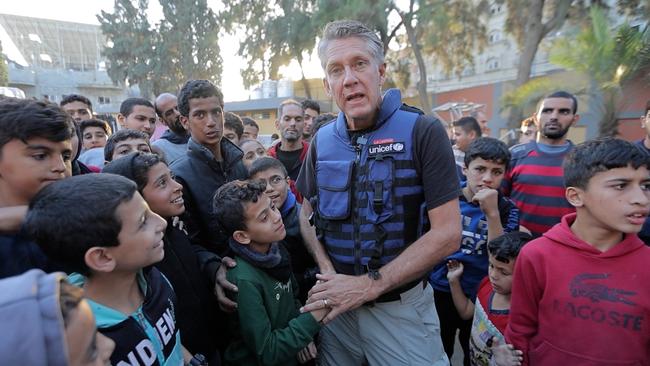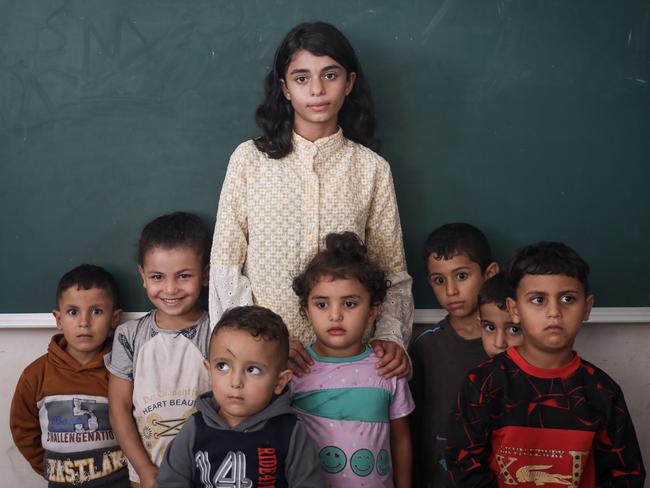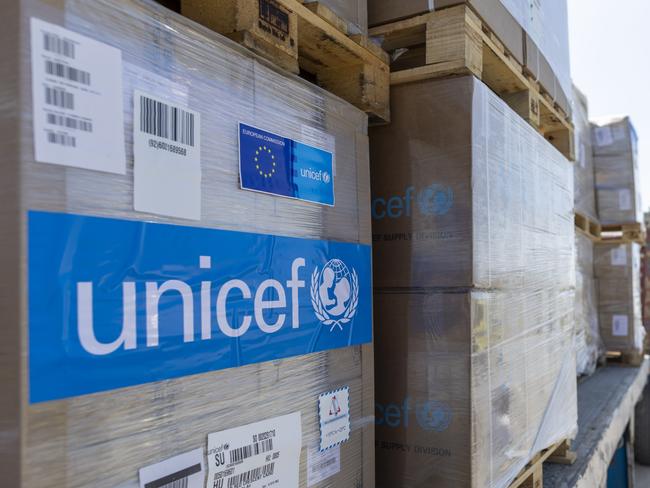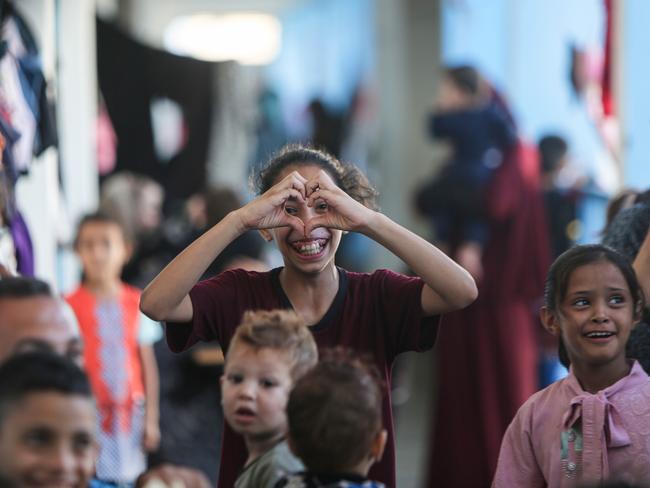Israel-Hamas war: Aussie UNICEF worker James Elder says situation in Gaza can get worse
James Elder has worked in some of the world’s worst disaster zones but admits he was unprepared for the horrors of life in Gaza. Watch video.
James Elder has - for more than 20 years - worked in some of the world’s most devastated crises, disaster and war zones imaginable.
Then he went to Gaza.
The veteran Australian humanitarian and global spokesman for UN children’s agency UNICEF had read the reports and seen the images but was unprepared for what he has now been seeing live.
Since the Hamas-Israel ceasefire he has been moving from north to south of the embattled enclave to “stem the bleeding” of the continuing crisis.
There have so far been more than 5000 children dead from the war but now it’s the ones left behind.

The trucks of aid are coming in and going to the right places but not nearly enough and the population know not having enough to eat or a roof over their head is only part of the issue.
“I’ve certainly not seen the wounds of war on this scale,” Elder said on Friday from inside Gaza.
“I went inside one house with a man who owned the home and he showed me his daughter’s bedroom it was pink, toys and books on the shelf then he showed me with his fingers the number of family members from the house dead – he held up nine fingers, then he wrote in the dirt the number of extended family members killed, he wrote 30.
“That story was just not unique. There is a collective darkness that has seeped into Gaza … the horror stories are north to south, east to west.”

He said there was a mantra Gazans repeat and its around four things, food, water, medicines and ‘when are you going to stop the war?’
“It’s perpetual nail biting, everyone is just waiting to see what happens next. They have already lost everything, family friends and possessions, they have vacant looks and will tell you ‘my wife is dead, my two sons are dead, my daughter is dead, my home and business is gone’ … it’s ground zero, you’d think there is nowhere to fall from here but they know full well it can get worse with the rain and the cold and heaven forbid when the attacks start again.”

Elder said of the 1.7 million people now displaced, half were children and every day had been a race against time literally while the ceasefire held up, to set up tents and bring in water and warm clothes.
He said collective nervousness and sensitivities meant the politics of the war was not directly being spoken about at length but Palestinians were angry and never imagined it could be as bad as it was.

“I saw a boy get off a bus missing part of a leg and you could smell the decomposing flesh and he went to the hospital and a few hours later I saw him again, he was still just there sitting on the floor,” he said.
“The medical staff are phenomenal, working 24-7 but it is a war zone and they are having to prioritise; his vitals are okay, it will have to be a full amputation but there is somewhere else bleeding out that needs attention. This is after the pause (ceasefire) so it will get worse.”
Elder said there is some things they can do, keep the aid trucks rolling in the first instance. Then in other quarters use whatever sway and influence to try to highlight that mass killing of people is not going to bring about peace or safety to the region but a negotiated solution to prioritise the rights of future generations of both Palestinian and Israeli children.
“The longer the war goes on, the deeper the polarisation, the deeper the frustration, the deeper the anger and the further we get from a political solution,” he said.
More Coverage
Originally published as Israel-Hamas war: Aussie UNICEF worker James Elder says situation in Gaza can get worse




